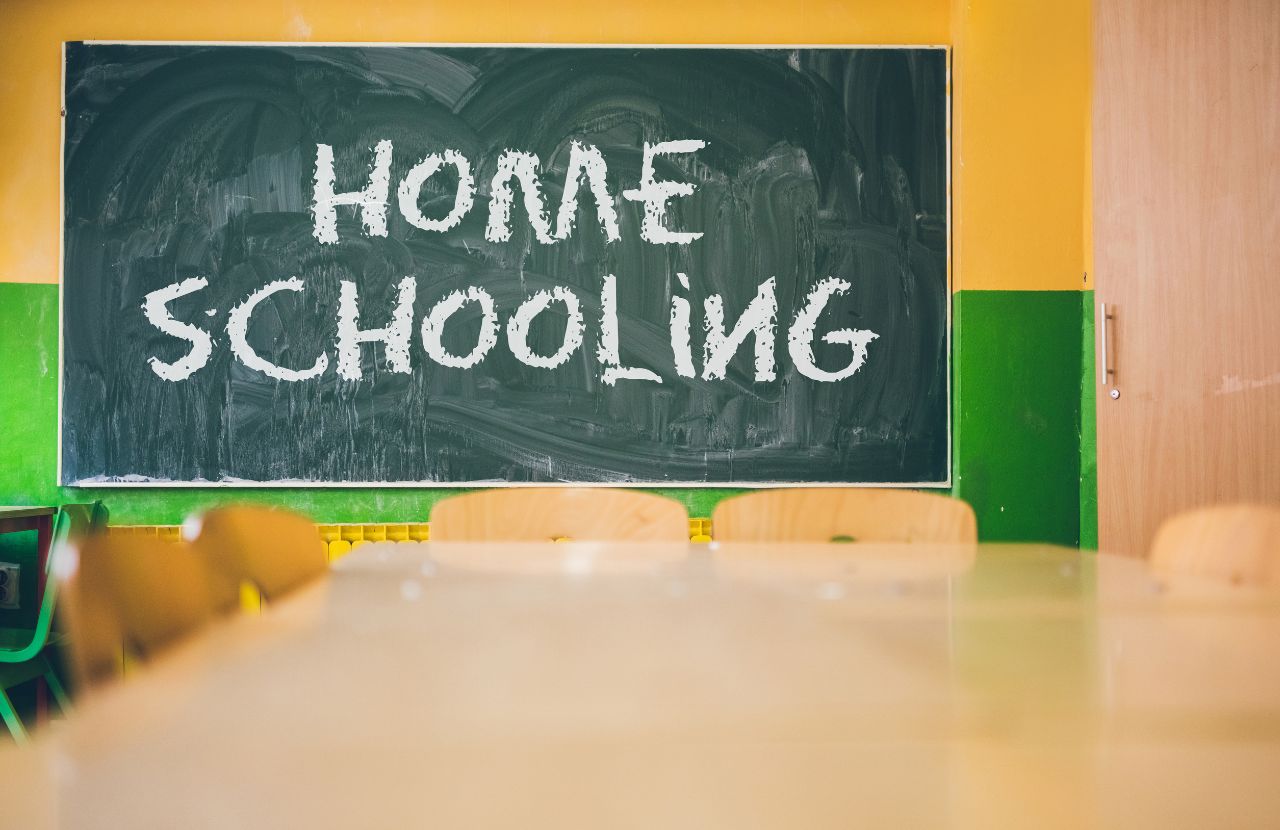Is homeschooling tax deductible?
As you consider the financial aspects of homeschooling, questions about tax deductions may arise.
Homeschooling can be a significant investment of both time and money, and it’s natural to wonder if there are tax benefits available to offset some of the expenses.
Let’s delve into the topic to provide a clear answer.
THIS POST MAY CONTAIN AFFILIATE LINKS. PLEASE READ MY DISCLOSURE FOR MORE INFO. Which means if you click on any of the links, I’ll receive a small commission at no additional cost to you.
Is Homeschooling Tax Deductible?
When considering homeschooling your children, it’s important to be aware of the financial aspect, including tax implications.

Unfortunately, in the United States, homeschooling expenses are generally not tax-deductible on a federal level.
Although homeschooling families face substantial expenses, these expenses are not eligible for federal tax deductions.
The reason for the lack of tax deductions for homeschooling expenses is the tax law definition of a “school”.
The term “eligible educator” refers to teachers and administrators who are employed in schools that provide elementary or secondary education, as defined by state law.
However, there are some exceptions at the state level where tax deductions or benefits may be available.
States like Minnesota, Indiana, Louisiana, Illinois, and Iowa offer such benefits for eligible families.
For example, Louisiana allows a deduction to income for 50% of the actual qualified educational expenses paid for homeschooling, limited to $5,000 per dependent.
It is prudent to research tax laws within your specific state to determine if there are any deductions or benefits applicable to homeschooling.
The Concept of Education Expense
When it comes to understanding the tax implications of homeschooling, it’s crucial to grasp the concept of education expenses.

In this section, we’ll delve into the two primary categories: tuition and enrichment activities, and school supplies and equipment.
Tuition and Enrichment Activities
As you plan and budget for your homeschooling journey, tuition and enrichment activities are among the key areas of expenses you’ll encounter.
These costs include fees for classes, tutors, or programs that support your child’s educational experiences.
For instance:
- Online courses
- Tutoring sessions
- Extracurricular activities (e.g., clubs or sports)
While these expenses are substantial, they aren’t tax-deductible at the federal level for homeschooling families.
The tax deduction for “eligible educators” doesn’t apply to parents or guardians homeschooling their children, due to the tax law definition of a “school.”
School Supplies and Equipment
Another significant component of education expenses is the acquisition of school supplies and equipment. These items are essential for carrying out your homeschooling plans and ensuring that your child has all the necessary resources to succeed.

Some common examples include:
- Textbooks
- Notebooks
- Writing utensils
- Learning materials (e.g., workbooks, art supplies)
- Electronic devices (e.g., computers, tablets)
Again, though these expenses are essential for homeschooling, they are not tax-deductible at the federal level. This distinction leaves homeschooling families to bear the full cost of these expenditures out of pocket.
While federal law doesn’t provide tax deductions for homeschooling families, it’s essential to stay informed about any changes to tax laws that may affect your situation.
Additionally, some states may offer tax incentives or deductions, so it’s worth investigating the rules in your location.
Understanding Tax Deductible Expenses
What Constitutes a Tax Deductible Expense
A tax-deductible expense is any cost that you can subtract from your taxable income on your annual tax return, effectively reducing your overall tax liability.
These expenses can include various costs, such as mortgage interest, charitable donations, or medical expenses.
The goal of deducting these expenses is to encourage certain spending behaviors within society, support industries, or provide relief from significant expenditures that may occur throughout the year.

Homeschooling Expenses That Do Not Qualify
When it comes to homeschooling expenses, it’s important to understand that, unfortunately, they are not tax deductible on a federal level.
However, there might be some tax breaks available for homeschoolers, such as deductions for special education expenses or charitable contributions.
For example, if you hire a tutor specialized in a particular topic, the cost might be deductible.
Similarly, donating money or materials to a non-profit homeschool association might qualify for a tax deduction.
It’s crucial to consult with a tax professional to determine what specific deductions may apply in your situation.
Instances of Tax Deduction for Homeschooling
When considering homeschooling, you may wonder if there are any tax deductions available for the expenses you might incur.
Unfortunately, as it currently stands, homeschooling expenses are not tax deductible on your federal income tax return. This is because the Internal Revenue Service (IRS) considers homeschooling costs to be personal expenses, similar to groceries or clothing.
There might be some confusion regarding tax deductions for homeschooling expenses because of the “Educator Expenses” tax break available for eligible teachers and educators, but this does not apply to homeschoolers.
You should remember that while homeschooling can provide a variety of benefits to your family, you should not expect a tax break for the expenses you incur throughout the homeschooling process.
In some cases, state tax laws might offer deductions or credits for homeschooling expenses, but these vary between states and are not part of the federal tax code.
It is essential to consult with a tax advisor or research your state’s laws to determine if any homeschool-related tax deductions are available where you live.
While you cannot expect tax deductions for homeschooling expenses at the federal level, you should still keep any records and receipts of your expenses, as this can be beneficial in budgeting and planning your homeschooling journey.
Homeschooling Vs Traditional Schooling Tax Implications
When considering the tax implications of homeschooling versus traditional schooling, it’s important to understand the key differences.

For traditional schooling, you might find more direct tax benefits depending on your state, such as deductions for school supplies or tuition expenses.
However, homeschooling may not provide the same federal tax benefits, but some states offer tax breaks specifically for homeschoolers.
The federal government doesn’t consider homeschooling as a “school” for tax purposes, so you cannot claim an educator expense deduction or use tax-favored funds from a 529 plan for homeschool students.
On the other hand, if you send your child to a traditional school, you may be able to take advantage of the educator expense deduction if you are a teacher.
Additionally, funds from a 529 plan can be used for tuition and related expenses at eligible institutions.
State-level tax benefits vary greatly for homeschooling families. Some states provide tax breaks specifically for homeschoolers, while others do not.
For example, certain states allow for deductions of homeschooling expenses, but you must itemize your deductions rather than taking the standard deduction.
It’s crucial to research your individual state’s tax laws to determine which benefits apply to your family.
Overall, the tax implications of homeschooling versus traditional schooling will depend on where you live and your individual financial situation.
It is important to research your state’s tax laws and consult with a tax professional to determine the best course of action to maximize tax deductions and benefits for your family’s education expenses.
Frequently Asked Questions
Are there any state-specific tax credits for homeschooling?
State-specific tax credits for homeschooling vary greatly depending on the jurisdiction. It is essential to research your state’s laws and regulations to determine if any tax credits or incentives are available for homeschooling families.
What educational expenses can be claimed for tax deductions?
Unfortunately, homeschooling expenses are generally not tax-deductible at the federal level. Homeschooling expenses are considered personal expenses and are not eligible for deductions on federal income tax returns.
However, some states may offer tax benefits for certain educational expenses. It is crucial to investigate your state’s tax laws to see if any deductions apply to you.
Does my state offer financial support for homeschoolers?
Financial support for homeschoolers varies from state to state. Some states offer programs or financial assistance for homeschooling families, while others do not provide any funding.
To determine if your state offers financial support, you should research your state’s education department or consult with local homeschooling organizations.
Are homeschool curriculums eligible for tax deductions?
Homeschool curriculums are generally not eligible for tax deductions at the federal level in the United States. As previously mentioned, homeschool expenses are considered personal expenses and are not tax-deductible on federal income tax returns.
However, state tax laws may vary, so it’s important to investigate your state’s regulations to see if any deductions apply to homeschool curriculums or other educational expenses.

Final Thoughts
In the end, you may wonder if homeschooling expenses are tax deductible. Unfortunately, homeschooling expenses are not deductible on a federal level as the tax law does not consider parents or guardians homeschooling their child as “eligible educators.”
However, you might find some relief at the state level, as certain states may offer tax credits or deductions for homeschooling expenses.
To make the most of your homeschooling budget, consider looking for free or low-cost curriculum options. You can also attend curriculum swaps or host one with other homeschooling families to share resources and save money.
By being resourceful and proactive, you can minimize the financial impact of homeschooling and focus on what matters most: providing a quality education for your child.
Disclaimer Statement: All data and information provided on this site is for informational purposes only. The Handy Tax Guy makes no absolute representation of the correctness, mistakes, omissions, delays, appropriateness, or legitimacy of any information on this site. **Note: Each client circumstance will vary on a case-by-case basis**


